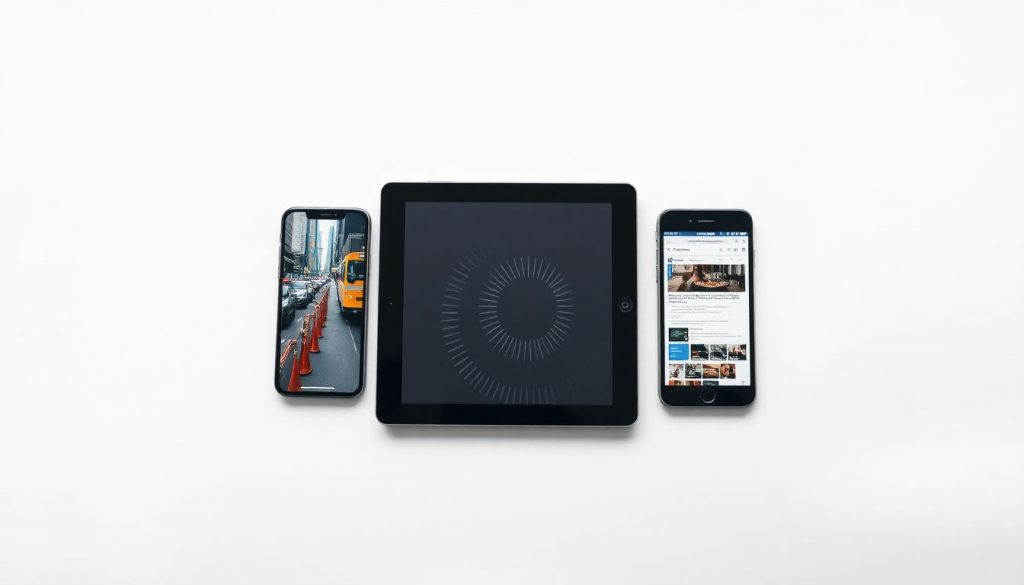Think of a realm with no screens vying for your attention. Unthinkable, right? But are you using the best-suited screen for the task? Choosing a phone, smartphone or tablet can be difficult.
Phones, of course, are for calls and texts. Like smartphones, they supply apps and the internet. Tablets have more screen area, good for video viewing.
We are talking about the phones, smartphones, and tablets basics. These other variances are also connectivity and processing power. This is an important thing to understand in order to make a good choice. That decision should match your needs and lifestyle.
BASIC PHONES: The Building Blocks of the Phone Industry
Basic phones are simple. Their relevance is dwindling. They are, however, still for some.
Primary Features of Cell phones
Basic phones do a few things. You can make calls. Sending texts is easy. Storage is limited. Last long over battery time.
Who Still Uses Basic Phones?
Others still use basic phones. Elderly users like them. They are also preferred by those in developing countries.” Some just want a phone for emergencies.
Pros and Cons of Simple Phones
Basic phones are cheap. The battery lasts long. But they lack features. They don’t support many apps.
The Small Device With Big Data: Smartphones
Smartphones are versatile. They have many apps. They also provide a level of always-on connectivity.
Features and functions of modern smartphone.
Mobile phones have decent cameras. Processors are powerful. GPS helps you navigate. Apps do almost anything. You can even use your phone to pay.
Three Uses for a Smartphone: Productivity and Entertainment
For banking, use your smartphone (and covered use with help). Check social media. Watch streaming videos. Play games. Even work with a smartphone, remotely.
Pros and Cons of Smartphones
Smartphones are convenient. They are very versatile. But the battery depletes quickly. Security risks exist. They can also be distracting.
Most people own a smartphone, did you also know? App usage is way up, too.
Tablets: The Middle Ground Between Phones and Laptops
Tablets have larger screens. This means that they’re also well suited for watching videos. They’re also good for some work chores.
Tablet Core Functionalities And Features
Tablets are fantastic for reading ebooks. You can easily watch videos. Games are fun on a tablet. Taking notes is simple. Lighter work tasks are also feasible.
Second, it is used during the learning process, both in education and in business.
Tablets help in education. They make business easier. Digital textbooks are common. Presentations look good. You can have remote meetings. Collecting the data is also less complicated.
Pros and Cons of Tablets
Tablets are portable. The big screen is nice. But they aren’t as powerful as laptops. Making calls can be awkward.
This includes the GSMarena and other network technologies.
The connections vary from device to device. GSM, 3G, 4G, 5G and Wi-Fi are among these. Information can be seen on GSMarena.com.
Mobile Networks Evolution and How They Work: GSM, 3G, 4G, 5G
The speed of these technologies differs. Coverage varies, too. 5G is the fastest. GSM is the oldest.
Also Read: What is Wi-Fi Connectivity on Phones, Smartphones, and Tablets?
Wi-Fi is very important for that reason. It allows you to figure out water, and connect in other places.
Using GSMarena. Visit the Sections on Mophie.
GSMarena.com provides information on those who support networks. Want to compare 5G bands? GSMarena will allow you to compare a phone and tablet next to each other.
A Practical Guide on How to Choose the Best Device for Your Needs
Think about what you need. This allows you to select the appropriate device.“
Understanding Your Use Cases
What do you do most? Select features on that basis.
Write down what you’re doing. Rank them by importance. Do you call a lot? Is social media your thing?
Consider Device Specifications and Budget
Balance cost and features. There is performance as well.
Set a budget first. Then do device comparisons in that price range.
Then the other important thing is to consider ecosystem compatibility.
There are benefits to sticking with one brand. There are advantages to both Apple and Android.
If you lean toward Apple products, consider an iPhone or an iPad. It will all work together.
Conclusion
Phones are for calls. Smartphones do more. Tablets are bigger. The right device knows your life.
The best device is the one that works for you. It helps you connect. It boosts your work. It allows you to consume entertainment.
